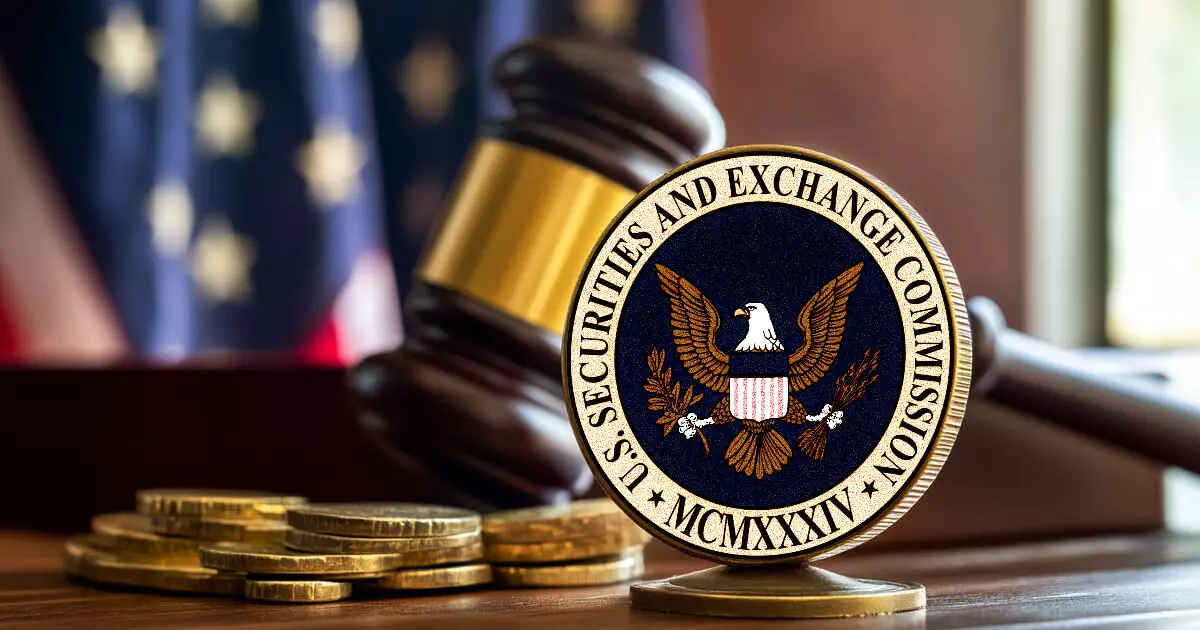On October 10, 2023, the Securities and Exchange Commission (SEC) launched a significant legal action against Cumberland DRW, a crypto market maker based in Chicago. The SEC’s allegations assert that Cumberland has been operating as an unregistered securities dealer, a move that raises substantial questions about regulatory compliance in the burgeoning crypto landscape. The complaint rests on the assertion that Cumberland has engaged in trading activities exceeding $2 billion in digital assets categorized as securities since March 2018. This case could serve as a bellwether in the ongoing struggle to define and regulate cryptocurrencies within existing legal frameworks, which aim to safeguard investors.
Jorge G. Tenreiro, acting chief of the SEC’s Crypto Assets and Cyber Unit, emphasized that the existing federal securities laws apply to all market participants, including those in the crypto sector. He specifically noted that the SEC holds that the activities of Cumberland, executed via their trading platform Marea and through traditional phone channels, constituted a violation of established laws. Despite ongoing debates within the crypto community regarding the classification of tokens—many advocating for a view that they should be deemed commodities rather than securities—the SEC points to Cumberland’s operational practices as evidence necessitating registration as a securities dealer.
The legal argument goes deeper, as Tenreiro’s assertions focus on investor protections that would have fallen under the regulatory umbrella had Cumberland complied with the registration requirements. Investors typically expect a certain level of oversight and accountability when engaging in market transactions, particularly with assets resembling traditional securities. This firm stance taken by the SEC poses a substantial test for crypto enterprises attempting to navigate an environment beset by evolving regulations.
In the wake of the SEC’s charges, Cumberland issued a statement via social media contesting the regulator’s approach, criticizing it as an attempt to stifle innovation in the crypto realm. They claimed that they would maintain their business operations unchanged, asserting confidence in their compliance mechanisms despite the complexity of regulatory expectations, which they described as a “moving target.” This defiance signifies a broader attitude within parts of the crypto industry that resists traditional financial regulations, reflecting a cultural divide between innovation and compliance.
Cumberland’s assertion that they had successfully obtained broker-dealer registration in 2019 with the oversight of SEC Chairman Gary Gensler further underscores the tangled relationship between crypto firms and regulators. While Cumberland notes its compliance efforts in the past, the question arises whether these measures are sufficient given the evolving nature of the crypto market and the specific transactions the SEC highlighted in its complaint.
Interestingly, the SEC’s accusations against Cumberland bring to mind past controversies linked to the firm itself. Notably, in 2013, when Gensler was leading the Commodity Futures Trading Commission (CFTC), his agency alleged market manipulation practices against Cumberland’s parent company, DRW. The subsequent legal proceedings concluded with a ruling in favor of Cumberland, emphasizing the shortcomings of the CFTC’s claims. These historical contexts complicate the narrative, illustrating the landscape of ongoing regulatory scrutiny against Cumberland and the potential ramifications for the broader crypto industry.
Financial Position and Market Influence
Cumberland’s financial footing remains robust, currently holding over $81.5 million in cryptocurrencies, primarily Bitcoin and Ethereum, with additional allocations to various stablecoins and tokens. This diversified asset base not only reflects a strategic investment approach but also positions Cumberland as a significant player in crypto liquidity markets. However, the firm’s financial success does not exempt it from the repercussions of regulatory challenges, highlighting an inherent tension between profitability and regulatory compliance.
As the SEC pursues its legal actions against Cumberland, the implications of this case ripple outwards, affecting other players in the crypto market. Both the SEC and crypto firms like Cumberland must navigate an evolving regulatory landscape, entrenched debates over asset classification, and the overarching imperative to protect investors. The resolution of this case may not only determine Cumberland’s operational future but also influence the regulatory framework governing cryptocurrencies, making it a critical moment in the ongoing dialogue between innovation and compliance within the rapidly changing world of digital assets.


















